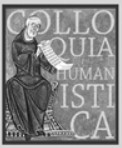Buddhism and Urbanism in Post-Soviet Buryatia
Buddhism and Urbanism in Post-Soviet Buryatia
Author(s): Bato Dondukov, Oyuna DORZHIGUSHAEVA, Galina DondukovaSubject(s): Regional Geography, Ethics / Practical Philosophy, Indian Philosophy, Rural and urban sociology, Environmental interactions, Transformation Period (1990 - 2010), Sociology of Religion
Published by: Instytut Slawistyki Polskiej Akademii Nauk
Keywords: Buryat Buddhism; anti-urbanism; post-Soviet Buryatia; environmental ethics;
Summary/Abstract: With the collapse of the Soviet Union the traditionally Buddhist regions of Russia, including the Republic of Buryatia, experienced the revival of religion. Along with the traditional Gelug school of Mahayana Buddhism existing on the territories around Lake Baikal for more than three hundred years, the globalized model of Buddhism started to spread quickly in Buryatia in the 1990s. Tibetan Buddhist teachers started to establish new Buddhist organizations in Buryatia and thus to transform the urban landscape of Ulan-Ude, the capital of the republic. The article traces how global and local Buddhist organizations become represented in the urban landscape of Ulan-Ude and considers the anti-urban position of Khambo Lama Damba Ayusheev.
Journal: Colloquia Humanistica
- Issue Year: 2021
- Issue No: 10
- Page Range: 1-19
- Page Count: 19
- Language: English

